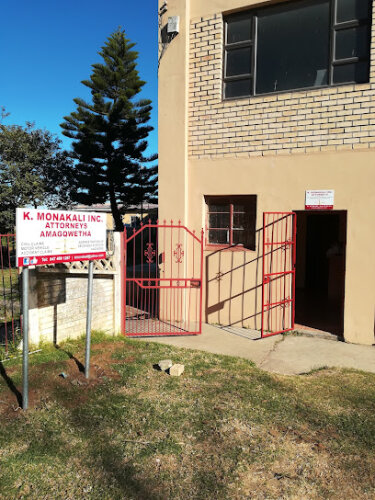Best Labor Law Lawyers in East London
Share your needs with us, get contacted by law firms.
Free. Takes 2 min.
List of the best lawyers in East London, South Africa
About Labor Law in East London, South Africa
Labor Law in East London, as in the rest of South Africa, is a comprehensive and evolving field that governs the relationship between employers and employees. These laws are designed to protect the rights of workers, promote fair labor practices, and resolve disputes in the workplace. The city of East London, located in the Eastern Cape, is home to a diverse workforce across industries such as automotive, manufacturing, construction, and services. Compliance with national labor regulations is mandatory for all employers and employees within this jurisdiction.
Why You May Need a Lawyer
Labor law issues can be complex and emotionally charged, often involving livelihoods and workplace relationships. People may require legal help in several scenarios, including:
- Unfair dismissal or retrenchment from a job
- Disputes over employment contracts or working conditions
- Discrimination or harassment in the workplace
- Workplace injuries and compensation claims
- Unpaid salaries, overtime, or benefits
- Issues relating to unions and collective bargaining
- Facing disciplinary hearings or grievance procedures
- Retirement, redundancy, or severance issues
- Interpreting complex labor legislation
- Appealing decisions at the Commission for Conciliation, Mediation, and Arbitration (CCMA) or Labour Court
A labor lawyer can provide professional guidance, ensure your rights are protected, and help achieve a fair outcome.
Local Laws Overview
Labor law in East London is primarily governed by national legislation, with some regional specifics based on the local workforce and economic environment. Key statutes include:
- Labour Relations Act (LRA) 66 of 1995: Focuses on collective bargaining, dispute resolution, and fair labor practices.
- Basic Conditions of Employment Act (BCEA) 75 of 1997: Sets out minimum conditions of employment, including working hours, leave, and termination rules.
- Employment Equity Act (EEA) 55 of 1998: Prevents unfair discrimination and promotes equity in the workplace.
- Occupational Health and Safety Act (OHSA) 85 of 1993: Ensures safe and healthy working environments.
- Compensation for Occupational Injuries and Diseases Act (COIDA) 130 of 1993: Provides compensation for workers injured or ill at work.
Local factors in East London, such as the high prevalence of certain industries and regional bargaining councils, can influence how these laws are interpreted and applied. For both employees and employers, understanding these laws is crucial for compliance and for protecting individual rights.
Frequently Asked Questions
What counts as unfair dismissal in East London, South Africa?
Unfair dismissal occurs when an employee is fired without a valid reason or without following a fair procedure as per the Labour Relations Act. Common examples include termination without notice, discrimination, or retrenchment without proper consultation.
How do I report an unfair labor practice or dismissal?
You can refer your dispute to the Commission for Conciliation, Mediation, and Arbitration (CCMA) within 30 days of dismissal or unfair practice. The CCMA will first attempt conciliation before considering arbitration or referral to the Labour Court.
What is the minimum wage in East London?
As of 2024, the national minimum wage in South Africa is set by the government and reviewed annually. Most employees (with some sectoral exceptions) are entitled to this wage, including in East London. Specific rates may apply in certain industries.
Am I entitled to overtime pay?
Yes. According to the BCEA, employees who work more than the standard hours (usually 45 hours per week) are entitled to overtime pay, typically at 1.5 times their ordinary wage, unless they hold managerial positions or are specifically exempt.
Can I be forced to work public holidays or weekends?
Employees cannot be compelled to work on public holidays unless there is agreement. If you work on a public holiday, you are generally entitled to double pay or time off in lieu, depending on your contract and collective agreements.
What protections exist against workplace discrimination?
The Employment Equity Act prohibits discrimination based on race, gender, sex, pregnancy, marital status, family responsibility, ethnic or social origin, colour, sexual orientation, age, disability, religion, HIV status, conscience, belief, political opinion, culture, language, birth, or any other arbitrary ground.
What should I do if I’m injured at work?
Report the injury immediately to your employer and seek medical attention. The employer must record the incident and notify the Compensation Fund under COIDA, which provides coverage for workplace injuries and occupational diseases.
Are employment contracts mandatory?
While employment contracts can be written or verbal, it is best practice to have a written contract outlining the terms and conditions of employment. By law, employers must provide certain written particulars of employment to employees.
What is the process for retrenchment?
Retrenchments must follow a fair procedure including consultation with affected employees or their representatives, using objective selection criteria, and paying proper severance. Reasons typically relate to operational requirements such as restructuring or financial constraints.
Where can I get help if I cannot afford a lawyer?
There are organizations such as Legal Aid South Africa, trade unions, and non-profit worker rights centers that provide free or subsidized legal services to qualifying individuals.
Additional Resources
If you need more information or assistance, consider the following resources:
- Commission for Conciliation, Mediation, and Arbitration (CCMA): Provides free dispute resolution services relating to unfair dismissals, workplace disputes, and other labor matters.
- Department of Employment and Labour: Offers guidance on employment standards, workplace safety, and rights enforcement.
- Legal Aid South Africa: Supplies free legal services to those who cannot afford private representation.
- Eastern Cape Provincial Department of Labour: Provides regional information and support tailored to the East London area.
- Trade Unions: Sector-specific unions can offer advocacy, support, and advice in labor matters.
- Labour Court: Handles more complex or unresolved labor disputes referred by the CCMA or parties involved.
Next Steps
If you need legal assistance in a labor law matter in East London, South Africa:
- Clearly identify the issue you are facing (e.g., dismissal, discrimination, unpaid wages).
- Collect all relevant documentation, such as employment contracts, payslips, disciplinary records, or written correspondence.
- Attempt to resolve the matter internally through your employer's grievance procedures, if possible.
- Contact an organization such as the CCMA or Legal Aid for initial advice and assistance.
- If necessary, consult with a reputable labor lawyer in East London who has local experience and knowledge.
- Follow the appropriate legal channels, including filing with the CCMA, regional labor office, or the Labour Court as directed.
- Ensure you meet all deadlines, as labor matters often have strict timeframes for disputes.
Seeking advice early, knowing your rights, and acting within the prescribed limits can make a significant difference in resolving workplace disputes fairly and efficiently.
Lawzana helps you find the best lawyers and law firms in East London through a curated and pre-screened list of qualified legal professionals. Our platform offers rankings and detailed profiles of attorneys and law firms, allowing you to compare based on practice areas, including Labor Law, experience, and client feedback.
Each profile includes a description of the firm's areas of practice, client reviews, team members and partners, year of establishment, spoken languages, office locations, contact information, social media presence, and any published articles or resources. Most firms on our platform speak English and are experienced in both local and international legal matters.
Get a quote from top-rated law firms in East London, South Africa — quickly, securely, and without unnecessary hassle.
Disclaimer:
The information provided on this page is for general informational purposes only and does not constitute legal advice. While we strive to ensure the accuracy and relevance of the content, legal information may change over time, and interpretations of the law can vary. You should always consult with a qualified legal professional for advice specific to your situation.
We disclaim all liability for actions taken or not taken based on the content of this page. If you believe any information is incorrect or outdated, please contact us, and we will review and update it where appropriate.










